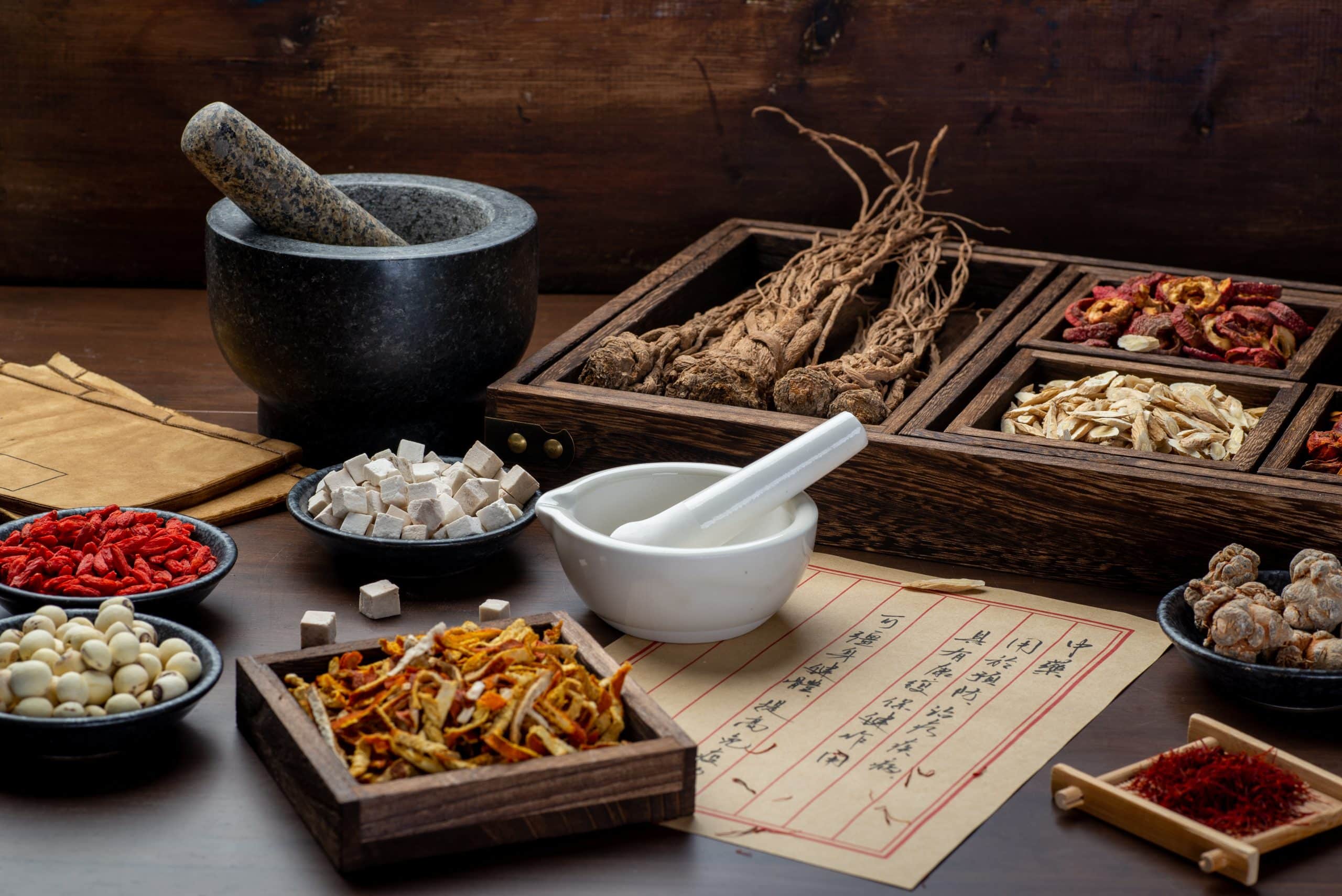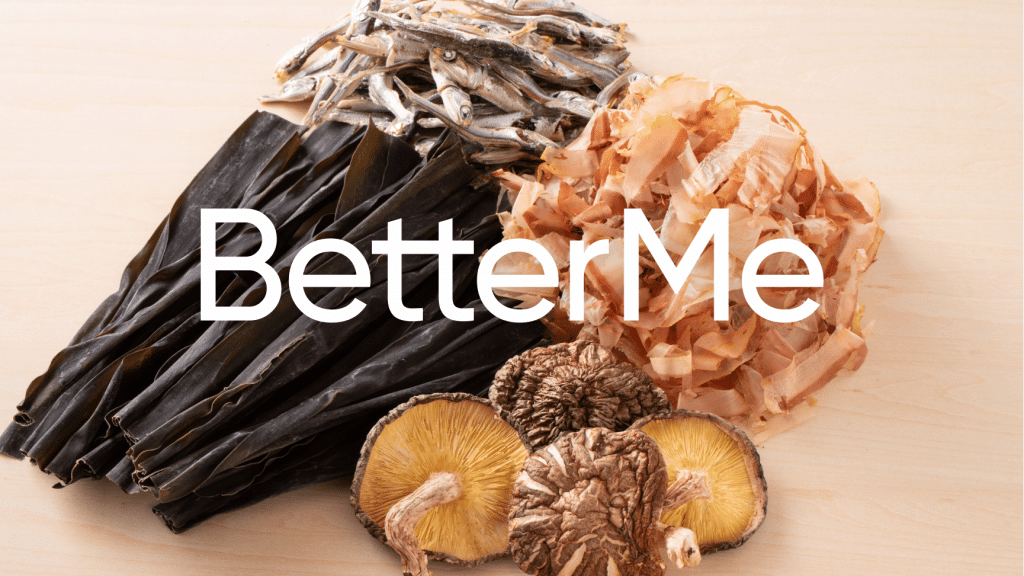Angelica root, scientifically known as Angelica archangelica, is a powerful yet often overlooked herb with a long history of medicinal use. Native to Northern Europe and Siberia, this versatile plant is characterized by its tall stature, umbrella-like clusters of white flowers, and aromatic roots. Renowned for its healing properties, Angelica root has been utilized by traditional medicine practitioners across various cultures for centuries (17).
Get your personalized
meal plan!
In this blog post, we’ll take a closer look at the world of Angelica root, exploring eleven remarkable health and well-being benefits that make it a valuable addition to your natural remedy repertoire. We’ll look at the science behind each benefit, as well as how to use this powerful plant in your daily life.
Note that, while science has begun to shed light on the potential health benefits of Angelica root, there is still a need for more comprehensive and rigorous research. This includes well-designed clinical trials involving human subjects to fully understand the efficacy, safety, and optimal dosage of Angelica root in various therapeutic applications.
With that in mind, here are the answers to your most pressing questions about Angelica root benefits.
What Is Angelica Root?
Angelica root is a term used to describe the roots of plants belonging to the Angelica genus, a group of about 60 species of biennial and perennial herbs from the family Apiaceae (17).
While there are several species within this genus, two of the most well-known and widely used are Angelica archangelica (wild celery or Norwegian angelica) and Angelica sinensis (female ginseng or dong quai).
Angelica archangelica is native to Northern Europe and Siberia, thriving in subarctic and temperate climates. This plant can grow up to 6 feet tall and is easily recognizable by its hollow stems, large green leaves, and umbrella-like clusters of white flowers.
The roots and seeds of A. archangelica have been traditionally used in European herbal medicine for various purposes, including as a digestive aid, treatment for respiratory issues, and relief from rheumatic pain (20).
On the other hand, Angelica sinensis, commonly known as dong quai or female ginseng, is native to China, Japan, and Korea. This plant is particularly popular in traditional Chinese medicine (TCM), where it has been utilized for thousands of years to address a range of health concerns (9).
- sinensis is primarily known for its potential benefits in regulating female hormonal balance, improving blood circulation, and reducing inflammation (9).
Though both A. archangelica and A. sinensis belong to the same Angelica genus, they are distinct species with unique properties and applications.
While they may share some similarities, their differences in origin, appearance, and traditional medicinal uses make it important to distinguish between the two when discussing Angelica root.
By understanding these distinctions, one can better appreciate the specific benefits and applications of each species within the realm of natural remedies and holistic health.
Read More: 18 Allspice Benefits For Health, Weight Loss, And More
What’s The Science Behind The Health Benefits Of Angelica Root?
Scientific research on Angelica root has been steadily growing, as researchers continue to explore the potential health benefits of both Angelica archangelica and Angelica sinensis.
While there is a considerable body of research on these plants, it’s important to note that the majority of studies have focused on Angelica sinensis, also known as dong quai or female ginseng.
Studies on A. sinensis have primarily investigated its potential effects on hormonal balance, blood circulation, and inflammation, among other health concerns (21).
Research findings suggest that the active compounds in A. sinensis may provide some benefits in these areas. However, it’s important to recognize that many of these studies are preliminary, conducted in vitro or on animal models, and may not directly translate to human applications.
As for Angelica archangelica, there is comparatively less research available. The existing studies have explored its potential benefits in areas such as digestive health, respiratory issues, and pain relief from rheumatic conditions (3).
While some promising results have emerged from these studies, it’s crucial to acknowledge that the evidence is still limited, and further research is needed to establish a more conclusive understanding of A. archangelica’s full range of health benefits.
Want to build an attention-grabbing bubble butt, blast away fat that’s stored in all the wrong places, spring-clean your diet, turn back the clock on your skin, skyrocket your self-confidence and shatter your insecurities? Check out the BetterMe app and set this plan in motion!
What Are The Benefits Of Angelica Root?
While both Angelica archangelica and Angelica sinensis have a range of purported health benefits based on traditional use, anecdotal evidence, and preliminary scientific research, it’s important to approach these benefits with caution.
More extensive studies are needed to confirm their efficacy and safety, as well as to determine optimal dosages for different applications.
With that being said, here are some of the potential benefits that Angelica root may provide:
Benefits Of Angelica Archangelica
1. Digestive Health
Angelica archangelica has been traditionally used to support digestive health. Its roots and seeds contain compounds that may help soothe gastrointestinal issues, such as indigestion, bloating, and flatulence (2).
The purported benefits of A. archangelica for digestive health are likely due to its potential carminative and antispasmodic properties.
2. Respiratory Relief
Another traditional use of Angelica archangelica is for respiratory ailments, such as coughs, bronchitis, and asthma. The plant’s roots and seeds are believed to have expectorant and anti-inflammatory properties, which may help alleviate symptoms related to respiratory issues (6).
3. Pain Relief
The analgesic and anti-inflammatory properties present in Angelica archangelica may provide relief from pain and other inflammatory conditions (15).
4. Anti-Cancer Potential
Preliminary studies on Angelica archangelica indicate that it may have potential anti-cancer properties. Some research suggests that the compounds found in this herb could inhibit the growth of cancer cells in test tubes and animal models (12) (14).
5. Antimicrobial Benefits
Angelica archangelica is believed to possess anti-microbial properties (8). This means that it may be effective in combating harmful bacteria, fungi, and viruses, possibly helping to prevent infections.
6. Anti-Anxiety Benefits
Some evidence suggests that Angelica archangelica may have potential anti-anxiety effects. Animal studies have shown that certain compounds in the herb might help reduce anxiety-like behavior (4).
Read More: The Hidden Secret To Relaxation – Discover The Benefits Of Elevating Legs
Benefits Of Angelica Sinensis (Dong Quai)
1. Hormonal Balance
Dong quai, or Angelica sinensis, is often referred to as “female ginseng” due to its purported benefits in regulating female hormonal balance. It has been used in traditional Chinese medicine to address menstrual irregularities, premenstrual syndrome (PMS), and menopausal symptoms.
Some studies suggest that the active compounds in A. sinensis may have estrogen-like effects (9) (11).
2. Blood Circulation
Angelica sinensis is believed to improve blood circulation by potentially dilating blood vessels and reducing blood viscosity (16). Improved circulation may contribute to reduced menstrual cramps, enhanced wound healing, and overall cardiovascular health.
3. Anti-Inflammatory Properties
The roots of Angelica sinensis contain compounds with potential anti-inflammatory effects. These properties may help reduce inflammation and alleviate pain associated with various conditions, such as arthritis or muscle aches (5).
4. Anti-Cancer Properties
Similar to Angelica archangelica, Angelica sinensis has also shown potential anti-cancer properties in preliminary studies. Research indicates that some compounds in A. sinensis might inhibit the growth of cancer cells in test tubes and animal models (18) (19).
5. Wound Healing
Some evidence suggests that Angelica sinensis may have a positive effect on wound healing (1). The herb’s potential ability to improve blood circulation and its anti-inflammatory properties could contribute to faster healing and reduced scarring.
Is Angelica Root Safe?
Angelica root, including both Angelica archangelica and Angelica sinensis, is generally considered safe for most people when consumed in moderate amounts and according to traditional use.
However, there are some potential downsides and precautions that should be taken into account before using these herbs.
For Angelica archangelica, it’s important to note that the plant contains furocoumarins, compounds that can increase skin sensitivity to sunlight (photosensitivity), potentially leading to sunburn or skin irritation (17).
To minimize this risk, avoid direct sunlight or use sun protection when using A. archangelica topically or ingesting it in significant amounts.
Additionally, Angelica archangelica may have blood-thinning properties, which could interfere with blood clotting or increase the risk of bleeding. Individuals taking blood-thinning medications, or those with bleeding disorders, should exercise caution and consult a healthcare professional before using this herb (13).
As for Angelica sinensis, its estrogen-like effects may not be suitable for everyone.
Women with hormone-sensitive conditions, such as breast cancer, uterine cancer, ovarian cancer, endometriosis, or uterine fibroids, should avoid using A. sinensis without initially consulting their healthcare provider.
These estrogenic effects may also interact with hormone replacement therapy (HRT) and certain birth control pills.
Pregnant and breastfeeding women should avoid using both Angelica archangelica and Angelica sinensis, as there is limited information about their safety during pregnancy and lactation (10).
Remember that individual reactions to herbs can vary, and allergic reactions, although rare, are possible. If you experience any adverse effects after consuming Angelica root, discontinue use and consult your healthcare provider.
When it comes to weight loss, progress is made by inches, not miles, so it’s much harder to track and a lot easier to give up. BetterMe app is your personal trainer, nutritionist and support system all in one. Start using our app to stay on track and hold yourself accountable!
How To Make Angelica Root Tea?
Angelica root tea is a soothing and aromatic herbal infusion made from the dried roots of Angelica archangelica or Angelica sinensis. Preparing this tea is simple and requires only a few ingredients and steps.
Ingredients:
- 1 teaspoon of dried Angelica root (A. archangelica or A. sinensis), cut into small pieces or ground
- 8 ounces (240 ml) of water
- Sweetener, such as honey or stevia (optional)
- Additional herbs or spices, like cinnamon, ginger, or licorice root for added flavor and benefits (optional)
Instructions:
- Bring water to a boil in a saucepan or kettle.
- Place the dried Angelica root in a teapot or tea infuser. If you’re using additional herbs or spices, add them at this stage.
- Pour the boiling water over the Angelica root into the teapot or tea infuser.
- Cover the teapot or infuser with a lid to retain heat and let the tea steep for at least 5-10 minutes. The longer the steeping time, the stronger the flavor and potential benefits are.
- After steeping, strain the tea into a cup using a fine mesh strainer or by removing the tea infuser.
- Sweeten the tea with your preferred sweetener, such as honey or stevia, if desired. This step is optional and can be adjusted to your taste preference.
- Enjoy your Angelica root tea while it’s warm. You may drink it up to 2-3 times a day, depending on your needs and preferences.
Conclusion
Angelica root, encompassing both Angelica archangelica and Angelica sinensis, offers a variety of potential health benefits, such as supporting digestive health, improving blood circulation, and providing anti-inflammatory effects.
While these benefits are backed by traditional use and anecdotal evidence, it’s essential to approach them with caution and consult a healthcare professional before incorporating Angelica root into your wellness routine.
DISCLAIMER:
This article is intended for general informational purposes only and does not serve to address individual circumstances. It is not a substitute for professional advice or help and should not be relied on for making any kind of decision-making. Any action taken as a direct or indirect result of the information in this article is entirely at your own risk and is your sole responsibility.
BetterMe, its content staff, and its medical advisors accept no responsibility for inaccuracies, errors, misstatements, inconsistencies, or omissions and specifically disclaim any liability, loss or risk, personal, professional or otherwise, which may be incurred as a consequence, directly or indirectly, of the use and/or application of any content.
You should always seek the advice of your physician or other qualified health provider with any questions you may have regarding a medical condition or your specific situation. Never disregard professional medical advice or delay seeking it because of BetterMe content. If you suspect or think you may have a medical emergency, call your doctor.
SOURCES:
- A Study of the Wound Healing Mechanism of a Traditional Chinese Medicine, Angelica sinensis, Using a Proteomic Approach (2012, hindawi.com)
- An Overview of Herbal Nutraceuticals, Their Extraction, Formulation, Therapeutic Effects and Potential Toxicity (2023, mdpi.com)
- Angelica archangelica Linn. is an angel on earth for the treatment of diseases (2011, journals.lww.com)
- Anti-anxiety activity of successive extracts of angelica archangelica linn. on the elevated t-maze and forced swimming tests in rats (2012, sciencedirect.com)
- Anti-Inflammatory Effects of Angelica sinensis (Oliv.) Diels Water Extract on RAW 264.7 Induced with Lipopolysaccharide (2018, mdpi.com)
- Back to the Roots—An Overview of the Chemical Composition and Bioactivity of Selected Root-Essential Oils (2021, mdpi.com)
- Botanicals and Their Bioactive Phytochemicals for Women’s Health (2016, ncbi.nlm.nih.gov)
- Chemical Composition and Antibacterial Activity of Angelica archangelica Root Essential Oil (2017, pubmed.ncbi.nlm.nih.gov)
- Danggui to Angelica sinensis root: Are potential benefits to European women lost in translation? A review (2014, sciencedirect.com)
- Dong Quai – Drugs and Lactation Database (LactMed®) (2021, ncbi.nlm.nih.gov)
- Estrogenic Plants: to Prevent Neurodegeneration and Memory Loss and Other Symptoms in Women After Menopause (2021, frontiersin.org)
- Imperatorin as a Promising Chemotherapeutic Agent against Human Larynx Cancer and Rhabdomyosarcoma Cells (2020, mdpi.com)
- Interaction between warfarin and Chinese herbal medicines (2015, ncbi.nlm.nih.gov)
- Medicinal properties of Angelica archangelica root extract: Cytotoxicity in breast cancer cells and its protective effects against in vivo tumor development (2019, sciencedirect.com)
- Optimization of extraction conditions of Angelica archangelica extract and activity evaluation in experimental fibromyalgia (2020, onlinelibrary.wiley.com)
- Pharmacological effects of Radix Angelica Sinensis (Danggui) on cerebral infarction (2011, biomedcentral.com)
- Phytochemical Constituents, Folk Medicinal Uses, and Biological Activities of Genus Angelica: A Review (2023, mdpi.com)
- Review of Natural Product-Derived Compounds as Potent Antiglioblastoma Drugs (2017, hindawi.com)
- The Methanol Extract of Angelica sinensis Induces Cell Apoptosis and Suppresses Tumor Growth in Human Malignant Brain Tumors (2013, hindawi.com)
- Understanding the phytochemistry and molecular insights to the pharmacology of Angelica archangelica L. (garden angelica) and its bioactive components (2021, pubmed.ncbi.nlm.nih.gov)
- Z-ligustilide: A review of its pharmacokinetics and pharmacology (2020, pubmed.ncbi.nlm.nih.gov)











